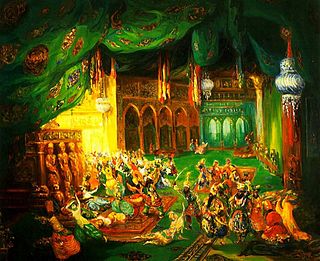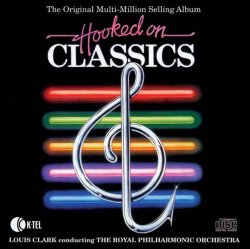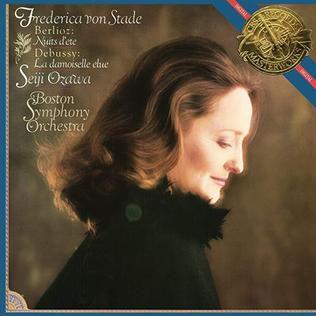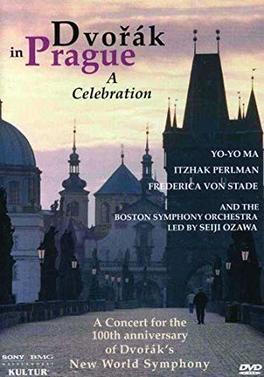
Seiji Ozawa was a Japanese conductor known internationally for his work as music director of the Toronto Symphony Orchestra, the San Francisco Symphony, and especially the Boston Symphony Orchestra (BSO), where he served from 1973 for 29 years. After conducting the Vienna New Year's Concert in 2002, he was director of the Vienna State Opera until 2010. In Japan, he founded the Saito Kinen Orchestra in 1984, their festival in 1992, and the Tokyo Opera Nomori in 2005.
The Tanglewood Festival Chorus, directed by James Burton, is a chorus which performs with the Boston Symphony Orchestra and Boston Pops in major choral works. The Tanglewood Festival Chorus (TFC) was organized in the spring of 1970, when founding conductor John Oliver became director of vocal and choral activities at the Tanglewood Music Center, the summer home of the BSO. Originally formed for performances at the BSO's summer home at the behest of the BSO's conductor designate Seiji Ozawa, the Tanglewood Festival Chorus is the official chorus of the Boston Symphony Orchestra and Boston Pops Orchestra year-round, performing in Boston, New York and Tanglewood.

Frederica von Stade is a semi-retired American classical singer. Best known for her work in opera, she was also a recitalist and concert artist, and she recorded more than a hundred albums and videos. She is especially associated with operas by Mozart and Rossini, and also with music by French and American composers, most notably Jake Heggie. A Chevalier of France's Ordre des Arts et des Lettres, twice the winner of a Grand Prix du Disque and nominated nine times for a Grammy award, she is widely regarded as the pre-eminent lyric mezzo-soprano of her generation.

Mendelssohn's Piano Concerto No. 1 in G minor, Op. 25, was written in 1830–31, around the same time as his fourth symphony, and premiered in Munich on 17 October 1831. This concerto was composed in Rome during a travel in Italy after the composer met the pianist Delphine von Schauroth in Munich. The concerto was dedicated to her. Mendelssohn attended one party after another in Munich in October 1831, the month of the premiere, but he also played chamber music and taught double counterpoint. He performed the piece himself at the premiere, which also included performances of his Symphony No. 1 and the Overture from Midsummer Night's Dream. He had already written a piano concerto in A minor with string accompaniment (1822) and two concertos with two pianos (1823–24).

Scheherazade, also commonly Sheherazade, Op. 35, is a symphonic suite composed by Nikolai Rimsky-Korsakov in 1888 and based on One Thousand and One Nights.
On two occasions, Felix Mendelssohn composed music for William Shakespeare's play A Midsummer Night's Dream. First in 1826, near the start of his career, he wrote a concert overture. Later, in 1842, five years before his death, he wrote incidental music for a production of the play, into which he incorporated the existing overture. The incidental music includes the famous "Wedding March".
Judith Blegen is an American soprano, particularly associated with light lyric roles of the French, Italian and German repertories.

A Midsummer Night's Dream is a 1968 British film of William Shakespeare's play A Midsummer Night's Dream, directed by Peter Hall.

The Tempest incidental music, Op. 1, is a set of movements for Shakespeare's play composed by Arthur Sullivan in 1861 and expanded in 1862. This was Sullivan's first major composition, and its success quickly brought him to the attention of the musical establishment in England.

Die erste Walpurgisnacht is a poem by Johann Wolfgang von Goethe telling of efforts by Druids in the Harz Mountains to practice their pagan rituals in the face of new and dominating Christian forces.
The University City Symphony Orchestra is a non-profit community orchestra located in the St. Louis area. This is a partial listing of its programs during its 40+ year existence:
The Eighth Symphony by the German composer Hans Werner Henze was composed in 1992–93.

Hooked on Classics is a classical crossover album recorded by the Royal Philharmonic Orchestra conducted by Louis Clark, released in 1981 by K-tel and distributed by RCA Records, part of the Hooked on Classics series. It was produced by Jeff Jarratt and Don Reedman.

Shéhérazade is a 40-minute studio album of art songs by Maurice Ravel performed by Frederica von Stade. In the Chansons madécasses, she is accompanied by the flautist Doriot Anthony Dwyer, the cellist Jules Eskin and the pianist Martin Katz. In two of the Cinq mélodies populaires grecques, the Deux mélodies hébraïques and Shéhérazade itself, she is accompanied by the Boston Symphony Orchestra under the direction of Seiji Ozawa. The album was released in 1981.

Nuits d'été & La damoiselle élue is a 51-minute studio album of songs by Hector Berlioz and a cantata by Claude Debussy performed by Frederica von Stade, Susanne Mentzer, the Tanglewood Festival Chorus and the Boston Symphony Orchestra under the direction of Seiji Ozawa. It was released in 1984.

A Midsummer Night's Dream is a 51-minute studio album containing the overture and most of the incidental music that Felix Mendelssohn wrote to accompany William Shakespeare's play of the same name. It is performed by Judith Blegen, Frederica von Stade, the Women's Voices of the Mendelssohn Club of Philadelphia and the Philadelphia Orchestra under the direction of Eugene Ormandy. It was released in 1977.

Dvořák in Prague: A Celebration was an 89-minute televised concert presented in Prague's Smetana Hall on 16 December 1993, in which thirteen pieces of music by Antonin Dvořák were performed by the pianist Rudolf Firkušný, the cellist Yo-Yo Ma, the violinist Itzhak Perlman, the mezzo-soprano Frederica von Stade, the Prague Philharmonic Chorus and the Boston Symphony Orchestra under the direction of Seiji Ozawa. It was produced by Sony Classical Film and Video, Czech Television and Germany's Zweites Deutsches Fernsehen in association with Pragokoncert, the Netherlands' Algemene Vereniging Radio Omroep and the United States' Public Service Broadcasting and MJI Broadcasting, and was released on Laserdisc, VHS video cassette, CD and audio cassette by Sony Classical Records and on DVD by Kultur Video.















